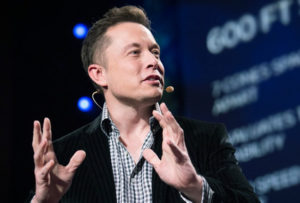
The Connecticut Retirement Plans and Trust Funds, helmed by state Treasurer Denise Nappier, is seeking changes in how automaker Tesla elects its directors. The CRPTF owns a small portion of Tesla, which is once again trying to win state approval allowing it to sell its cars in the state.
Directors for the Palo Alto, California-based company are divided into three categories, with each serving staggered three-year terms. Tesla told the SEC the board setup “allows our directors to maximize the interests of the company and our stockholders over the long term, without being distracted by special interests that seek only short-term returns.”
The state pensions fund, however, maintains in its proposal to Tesla shareholders that arrangement “is not in the best interest of shareholders because it reduces accountability and is an unnecessary anti-takeover device.” It also claims that various Tesla board members, including founder, CEO and Chairman Elon Musk, have conflicts of interest.
“The lead independent director of Tesla’s board, Antonio Gracias, serves on the board of SpaceX, also led by Musk, and served on the board of SolarCity, another Musk-founded firm that was recently acquired by Tesla,” the CRPTF wrote. “Gracias is the CEO and majority owner of a limited partnership in which both Musk and his brother are limited partners. In our view, these relationships call into question Gracias’ ability to effectively lead the board in its monitoring responsibilities, including its oversight of Musk.”
The company”™s shareholders will vote on the CRPTF proposal at its June 6 annual meeting.
Meanwhile, Tesla officials in late May increased its pressure on Connecticut legislators to pass a pending bill enabling direct car sales to consumers by the manufacturer by promising to open 10 stores across the state.
In an interview with the Hartford Business Journal, Diarmuid O’Connell, vice president of business development for Tesla, claimed that each of the 10 stores would conservatively employ 25 full-time workers. “We’re talking 250 jobs in the near term,” O’Connell said, noting that some stores could have up to 50 people on the payroll.
O’Connell also stated that the “thousands” of Connecticut purchase reservations for the Tesla Model 3 vehicle is evidence of a strong consumer demand for the company”™s electric vehicles.
O”™Connell”™s announcement of the company”™s plans to open 10 Connecticut stores followed by a few days Musk”™s letter to the editor in the Hartford Courant, in which he defended his company”™s sales model, which bypasses the auto dealership network.
“Anyone who visits our stores can ask questions of Tesla”™s sales team and learn about electric vehicles without the stress of the typical car-buying experience at traditional dealerships,” Musk wrote. “There is no haggling over price (it is the same everywhere) and customers face no pressure to make a purchase.”
Musk cited a Consumer Reports survey that found 74 percent of Connecticut residents think electric vehicle manufacturers like Tesla should be able to sell directly to customers in the state, compared with 11 percent of respondents who opposed it. He noted that Connecticut was “one of just four states that blocks us from doing this,” adding that neighboring New York and Massachusetts allow direct Tesla vehicle sales and have taken away business that could have gone to Connecticut.
“Your elected officials have a choice,” Musk wrote. “They can vote to cede jobs to surrounding states or choose a path that helps the state close its budget gap and build upon its history as a place for innovation and business growth.”
Compiled from separate reports by Phil Hall and Kevin Zimmerman.






















